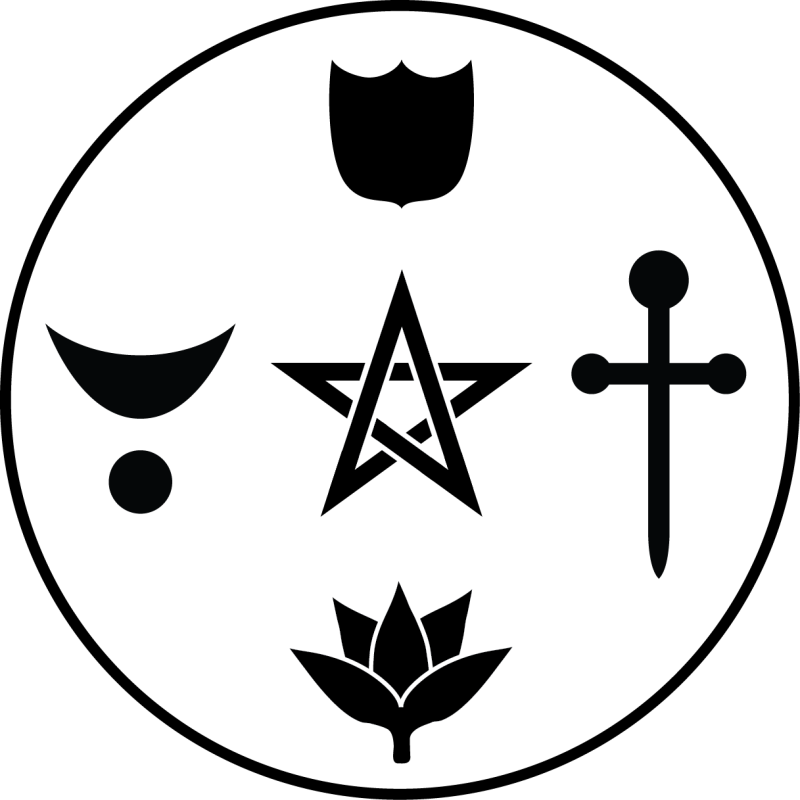By Sarah Thompson, November 2010
The practice of using ‘witch names,’ alternative names for oneself that are used only ritually or only in context of magickal matters, has been common practice for centuries.
Our tradition does not require the use of witch names, however, they can be nice to have for certain practical purposes, as will be discussed below, as well as feeling right.
Kinds of Witch Name
There are two basic kinds of magickal name in common use:
- Names that are based upon the name of a spirit, usually the patron deity of the witch.
- Names that are chosen and/or form a magickal motto.
Both approaches are valid, though each tends to have different characteristics.
Magickal names based upon the name of a spirit
Basing a magickal name upon the name of a spirit (usually a deity) tends to have the effect of bringing oneself into closer alignment with that spirit. Consequently, unless you actually work with that deity, choosing a deity name should be done with care, if and only if you really mean it. Doing so will bring that deity into your life, along with the energies associated with that deity.
Rev. Gina, one of the co-founders of the Circle of Cerridwen, has used the name Dagda after her patron deity, the Dagda.
Magickal names based upon a magickal motto
This approach typifies ceremonial magick groups such as the Golden Dawn and its derivatives, including the OTO. A magickal motto is usually rendered in a language other than the first language of its user — Hebrew, Latin and Greek are the most common, but pretty much any language works. Normally, a magickal motto embodies the intent, or aspiration, of its user.
The other cofounder, AM, uses a magickal motto. AM abbreviates the motto Artifex Mentis, Latin for ‘Maker of Understanding.’ Her primary calling is teaching, which is appropriate to that choice of motto.
Magickal Seals
Optionally, magickal names may be used in the form of a seal. Though all of the uses of magickal seals are beyond the scope of this particular essay, in general terms it is worth noting that magickal names, both of witches and of spirits, may take multiple forms, not all of which being a name that can be directly pronounced or written down. Seals may encode a surprisingly large amount of information very compactly.
Finding a Witch Name
Names can be decided upon by conscious choice, though it is more common to find that a name comes to you by inspiration at the time (or shortly before) it is needed. If you are skilled in divination, that technique can be useful. Ultimately, a name usually shows up that feels ‘right’. Names don’t necessarily last a lifetime — it is not uncommon to find that a new name comes up just before a new initiation, or consequential to a significant life event. A witch may have no magickal name, or may have several — it is purely a personal matter.
Uses of Witch Names
Apart from the obvious utility of magickal names in acting as pseudonyms in order to protect the privacy of individuals wishing to talk openly about magickal matters without connecting that with their mundane identity, witch names are useful in a ritual context. They tend to work more strongly than mundane names, and can be very useful in breaking someone out of a trance state. Given as part of a magickal statement of intent, they can greatly enhance its power and binding effect.
Secret or Public?
The choice of whether to keep witch names secret or to make them public is a personal choice. Names have power, so one school of thought tends toward the idea that keeping them secret is essentially safer for their holder. Using magickal names more publicly as pseudonyms can also be extremely useful. Some people therefore choose to take more than one magickal name, using a public name for outer communication and another entirely within circle. This approach is taken both by Sarah and by Rev. Gina, incidentally.
